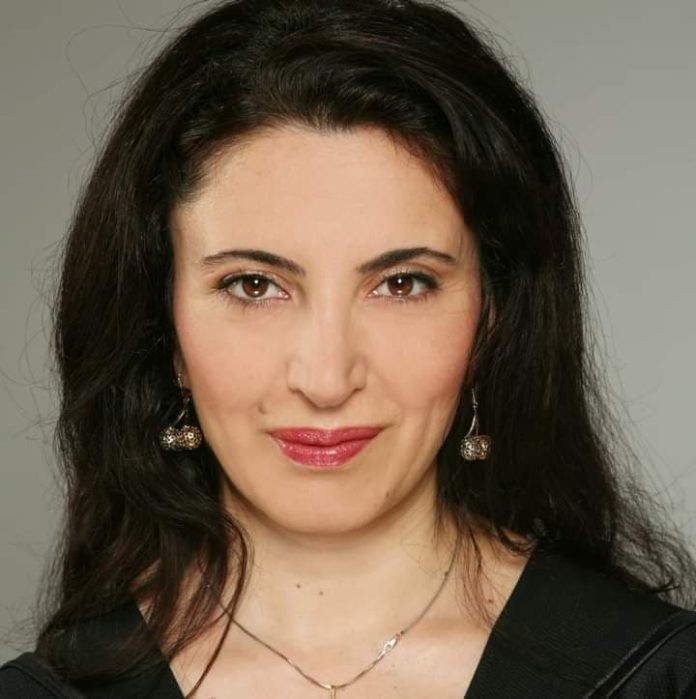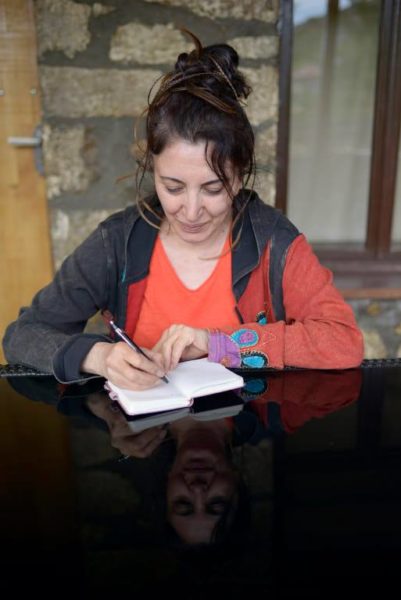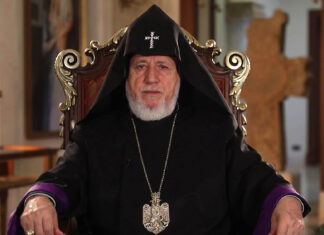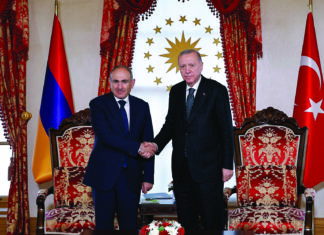YEREVAN – Ziné (Mamoyan) is one of most extraordinary people I have met. This Yezidi beauty was born in Ashtarak, Armenia, raised in the village and in the mountains, received her secondary and higher education in Yerevan and studied at the French department of the Brusov State Pedagogical Institute of Russian and Foreign Languages. After getting married, she moved to Paris, in her opinion, “the most beautiful city in the world.” Here she studied literature at the Sorbonne University, theater and directing at Paris 8 University. For seven years she was the president of the Auberbabel literary society in Paris. Ziné was engaged also in theater, gastronomic cooking, law, and now literature. Especially in recent years, she often visits her homeland, where she is known by many, first with her critical, often eccentric statuses and comments on Facebook, then with her novel in Armenian hêkê dûkê (yes, with small letters), published in 2020. French writer Jean-Michel Delacomptée, reading the French version of the book, wrote: “Ziné writes poetically, the style is exceptional and attractive. She is a great lover.”
Ziné, you see, I read your novel twice. It is so great you wrote hêkê dûkê. It is a hearty conversation written with long sentences about your life, your childhood perceptions, which have remained almost the same, as a result, creating a very frank literature about everything that has been created, written with a lot of love, a lot of bittersweetness, sometimes with humor. it was in your genes, as your grandmother’s brother, Smoe Shamo, was a writer. In what language do you think and which language is the easiest for you to write?
Armenian is very close to me, but one day I caught myself thinking in French. For twenty years, I wrote only in French, although I had not published anything. My Armenian came back when I started coming to Armenia often (in 2020 I was almost always here), also thanks to my very dear Armenian girlfriends in Paris. One day, Armenian flashed in me again and I started writing in Armenian, and I was a little sad that I was away from my favorite language. When I go home, the language of communication with my French friends and my daughter is French, and here I think in Armenian. I do speak the Kurmanji language well; it is also very close to me, but I have moved away from it a little. I did not find my colors, my style in literary Kurmanji. In any case, mine is a hybrid way of thinking, as [culturologist] Vardan Jaloyan would say.
By the way, do you agree with Vardan Jaloyan’s opinion that hêkê dûkê is not an Armenian novel, it is not a Yazidi-Kurdish novel, but a French novel, because it is about a woman living in France?
I think that what Vardan said does not only refer to living in France, it has a deeper meaning. Whatever I talk about in hêkê dûkê, even the saddest and most tragic things, I don’t annoy others, I don’t spread my anger, I speak with restraint, with elegance in my words. If you talk even about very unfortunate things, you have no right to transmit bad energy, the most you can do is to give a nice sadness. The novel is French in this sense — in its approach and style. Maybe that’s why people like my book. No matter how much their emotions get mixed up, they don’t get worse because I don’t transmit any negative emotions.
Many seemingly insignificant realities of childhood, it seems, should have been forgotten long ago or it would no longer be necessary to address them, but you write in detail, because the child is always within you. I don’t remember who said that a person should not be childish, but there should always be a child within a person.









